
Addiction and dependence are terms often used interchangeably. However, the more precise meanings are: Addiction is characterized as the compulsive desire for specific substances or behaviours. On the other hand, dependence means that a person can no longer live without the addictive substance (such as alcohol, drugs, or medications) or, in the case of behavioural addiction, without a particular behaviour like gaming.
Dependence can be classified into two types: substance-related and non-substance-related. In cases involving psychoactive drugs, individuals require professional support for treatment of addiction and dependence.
Substance-related dependence
This dependence involves the use of psychoactive substances such as alcohol, nicotine or tobacco, sleeping pills and tranquilizers, painkillers, cocaine, heroin, or cannabis. “Psychoactive” refers to substances that can alter consciousness and mental states.
Non-substance-related dependence
The non-substance related dependence manifests in excessive behaviours associated with a loss of control. Examples include gambling addiction, internet addiction, or shopping addiction.
What psychologists and psychiatrists look at as addiction symptoms are the patterns of behaviour and their negative consequences. The leading symptom of addictions is the fact that the substances are consumed or behaviors maintained despite their negative consequences for the individual and the society.
More precise figures on abuse and dependency are only available for the most commonly used substances. In the Western societies about 0.8% of the population is affected by cannabis abuse or dependency. Heroin dependency affects around 0.1% to 0.3%, while cocaine dependency affects about 0.1%.
People struggling with drug abuse or dependency often suffer from other mental health disorders as well. Around 50% to 60% have at least one other mental health condition. The most common are stress disorders, psychosomatic illnesses, anxiety disorders, depression, and personality disorders.
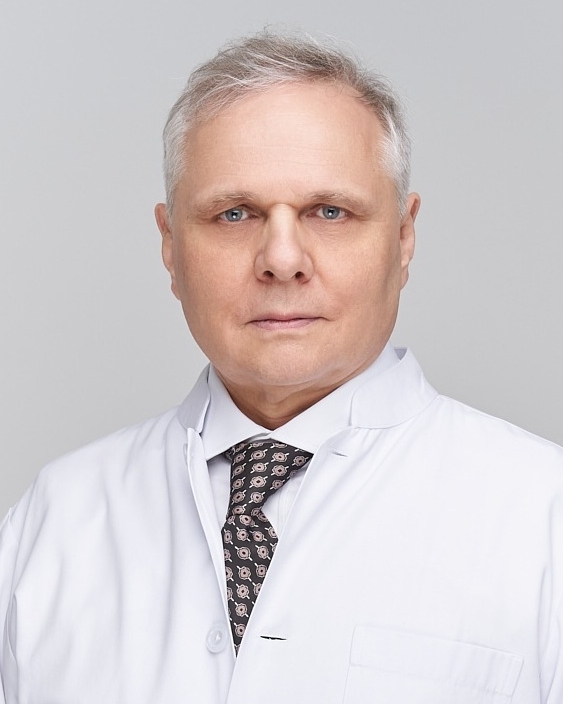
Schedule Appointment for Treatment of Addiction and Dependence
Call CHMCIn the article we provide a comprehensive description of distinct dependencies, their symptoms, causes, diagnostics and treatment options. Dor more information about treatment for addiction and dependence contact our specialists at CHMC.
ICD-10 Criteria of Dependence
Typical symptoms of dependency are loss of control, constant thoughts about it, planning one’s day and life around it, and ignoring negative consequences. Other symptoms can be physical and emotional pulling away and gaps in memory.
The WHO diagnostic manual, ICD-10 defines criteria defining a dependence:
- Continued substance use despite clear evidence of its harmful effects.
- A strong desire or compulsion to consume psychoactive substances.
- Reduced ability to control the onset, termination, or quantity of substance use.
- Physical withdrawal symptoms upon reducing or stopping use, demonstrated by substance-specific withdrawal signs or the use of the same or a closely related substance to mitigate or avoid withdrawal symptoms.
- Evidence of tolerance, meaning increased doses are needed to achieve the effects that smaller doses previously produced.
- Increasing neglect of other pleasures or interests in favor of substance use, along with more time spent on activities related to obtaining, using, or recovering from the substance.
Causes of Addiction and Dependence
There are various theories about how addiction develops. Why some people become dependent on alcohol, drugs or other addictive behaviour while others do not remains unclear. Experts agree that a variety of factors contribute to the development of addiction.
Gender plays a role, as men are at a higher risk of becoming dependent on alcohol or drugs compared to women. Genetic predisposition also has a significant impact; individuals whose parents or siblings have struggled with addiction are considerably more likely to develop dependencies themselves. External and social factors influence addiction as well, such as how easily alcohol or drugs are available and how role models or peers approach their use.
Stressful situations in the family or daily life, including workplace problems, separations, bereavement, or traumatic events, can also contribute to the development of addiction. Additionally, individuals with mental health conditions, such as depression or anxiety disorders, are particularly vulnerable. They often turn to alcohol or drugs as a way to alleviate their symptoms or cope with challenges.
Neurophysiological Causes of Addiction and Dependence
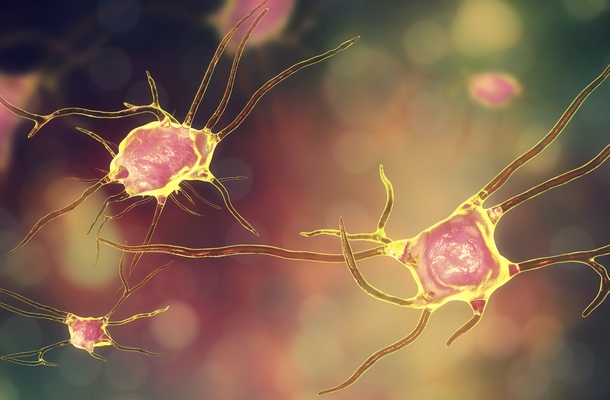
One of the most obvious characteristics of dependency is that the dependent person compulsively uses and abuses a substance despite negative health consequences. Research has shown that the addictive nature of nicotine is in part attributable to activation of the reward pathway. This pathway, also called the mesolimbic pathway, regSlates feelings of pleasure. Nicotine increases levels of the neurotransmitter in the reward circuit. Scientists believe this underlies the pleasurable sensations that many smokers experience (Is Nicotine, n.d.).
Psychological Mechanisms in Developing Dependence
Behavioral, psychodynamic, and environmental factors associated with smoking must be addressed as relevant aspects of nicotine dependency. A substance can become addictive if it is rewarding causing a pleasure or enjoyment. There is strong evidence that those non-pharmacological factors (opening the box, lighting the cigarette, inhaling and tasting the smoke in the throat) play an equally important role in creating the habit as nicotine.
Operant Conditioning in Addiction and Dependence
Dependencies, is a learned behaviour. According to the principles of operant conditioning, rewarded behaviour will increase. The danger of drugs (among them tobacco) relies on their ability to initiate an immediate reward. This also explains why the addictive substance tends to replace other, more healthy sources of rewards. These other types of rewards are frequently delayed (such as the return of good health) whilst the drugs create a short cut to the reward system. As addiction progresses, the availability of natural, healthy pleasures, which require more effort, decline. This creates a powerful addictive vicious cycle. For the smokers, the feel, smell, and sight and the ritual of obtaining, handling, lighting the cigarette – usually during a break or in a relaxed atmosphere – are all associated with the pleasurable effects contributing to the above-mentioned operant conditioning.
Psychodynamic Approach in Addiction
From the psychodynamic point of view smoking is a regressive behaviour related to the earliest phase of human development which Freud called the “oral phase”. The satisfaction and relaxing effect of putting a cigarette in the mouth corresponds to the pleasure of a child suckling the mother’s breast.
Genetics in Developing Dependency
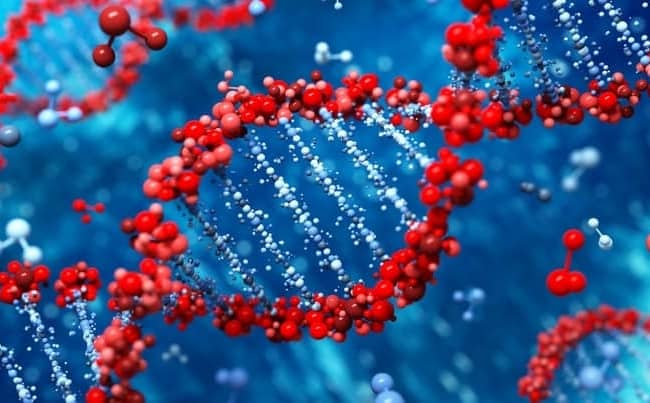
Scientists know genetics also play a role in addiction to nicotine. Inheriting different forms of 6 genes will dictate the feature of the brain receptor to which nicotine binds. This genetic variably offers an explanation for why some people develop a pack a day habit that they cannot seem to break, and others smoke a few cigarettes on occasion but do not have a compulsion to smoke.
Tobacco Addiction
Tobacco smoking is one of the most addictive habits. The addiction can be established even after a few days of smoking. The smokers are inhaling thousands of carcinogenic substances responsible for a much higher cancer rate and other diseases such as chronic bronchitis. Moreover, smoking significantly increases the risk for atherosclerosis, which is the main cause of heart attacks and strokes. The physical condition of smokers is lower compared to their peer group of non-smokers. The life expectancy of long-term smokers is significantly reduced.
The best way to avoid the addiction is not to start. Smoking cessation is possible at every stage and can be successful for all smokers under all circumstances.
Counselling for Smoking Cessation
Among different psychotherapy methods Cognitive Behavioural Therapy (CBT) is the most frequently investigated and evidence-based treatment for quitting smoking. It trains individuals to understand their trigger situations, regulate their feelings, and identify adaptive coping mechanisms. It helps lay the foundation for a sustainable, healthy lifestyle. Therapists with addiction training will also provide general psycho-education on addiction, including relapse prevention.
Quitting Smoking with Hypnosis
Treating tobacco addiction with hypnosis is effective method for stopping smoking. Clinical hypnotherapists with 3-5 sessions can set the stage on a subconscious level to remain smoke-free. Everyone has their own unique reasons for why they began smoking and why they want to quit smoking. A clinical hypnotherapist can uncover and address subconscious causes for smoking, increase motivation to remain smoke-free, and build ego strength to cope with daily life.
Alcohol Addiction
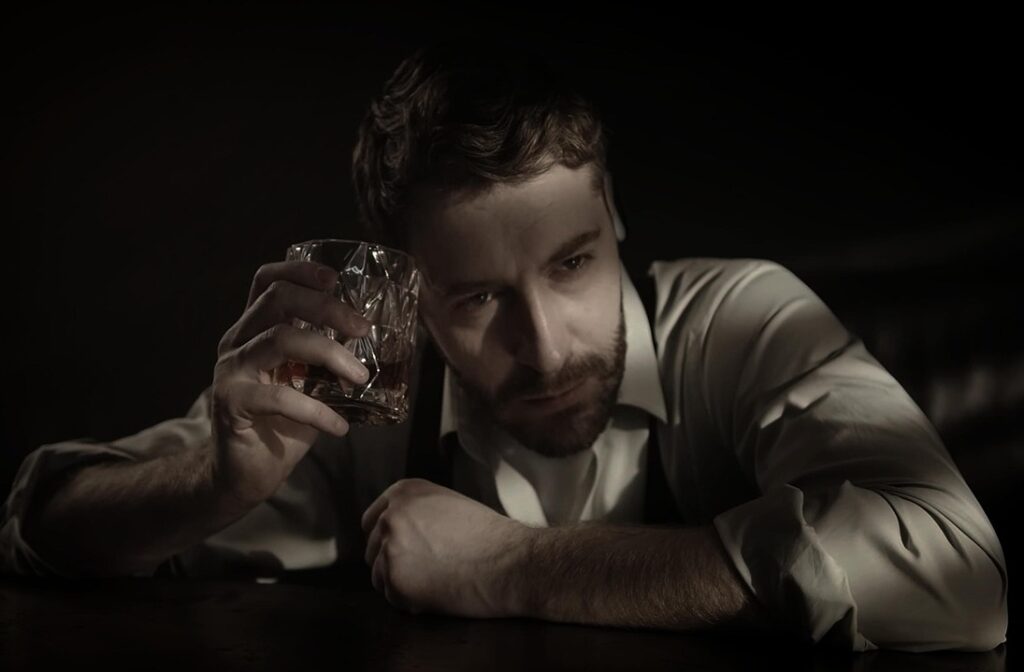
There are some of the signs that may indicate you have a problem with alcohol or are an alcoholic. If you are concerned about your drinking, it is important to reach out to a healthcare professional for help. They can provide you with a formal evaluation and help you determine if you have an alcohol use disorder (alcoholism) and what steps you can take to seek treatment and recovery.
Treatment for Alcohol Addiction and Dependence
Alcoholism, also known as alcohol use disorder, is a chronic and progressive condition that affects millions of people worldwide. Being an alcoholic can cause serious health and social problems, including physical and mental health issues, relationship problems, and financial difficulties.
Alcohol dependency (alcoholism) is a disorder and cannot be addressed with the too often heard words, “Why Don’t You Just Stop?” It is a complex disease that requires professional treatment by counselors and addiction specialists.
Here is why:
Once addiction has occurred permanent changes to the brain take place. We can say, the “off switch” in the brain is broken. More scientifically expressed: The intricate neural chemical feedback system between the pleasure reward system in the mid-brain and the decision-making part of the brain (the ventral medial prefrontal cortex/the part of the brain that is located behind the forehead) is no longer intact. This means that an addict will not be able to consume alcohol or drugs in a controlled way but will always seek more. Hence, to remain in recovery it is absolutely essential not to use any intoxicating (mind altering) substances.
Criteria of Alcoholism
If you’re wondering if you might have a problem with alcohol, or be an alcoholic here are some signs that may indicate you have an issue with alcohol.
Can’t control my drinking:
If you find that you can’t control the amount of alcohol you consume or stop drinking once you’ve started, it may be a sign of alcoholism. This can lead to binge drinking and an increased risk of alcohol-related harm.
Having strong craving for alcohol:
If you experience a strong urge or craving to drink alcohol, this could be a sign of physical dependence. This is a hallmark of alcoholism and can make it difficult to quit drinking, even if you want to.
Drinking despite negative consequences:
If you continue to drink even though it is causing problems in your personal, professional, or social life, it could be a sign of alcoholism. This can include harmful consequences such as work difficulties, strained relationships, and health problems related to drinking.
Prioritizing drinking over other activities:
If you find that you are regularly choosing to drink alcohol instead of engaging in other activities, such as spending time with friends or family, going to work, or taking care of responsibilities, it could be a sign of a problem.
Getting withdrawal symptoms when stopping drinking:
If you experience symptoms such as tremors, sweating, and nausea when you stop drinking, it could be a sign of physical dependence on alcohol. This can be a serious problem and can lead to increased risk of alcohol-related harm.”Blacking out”.
Trouble to remember what I did while drinking:
If you frequently forget what you did or said while drinking, it could be a sign of a problem with alcohol. This is known as alcohol-induced blackouts and can be a serious issue.
Drinking alone or in secret:
If you find that you are frequently drinking alone or in secret, it could be a sign of a problem. This can indicate that you are trying to hide your drinking from others, which can be a sign of shame or guilt related to your alcohol use.
Psychotherapy in Treatment for Addiction and Dependence
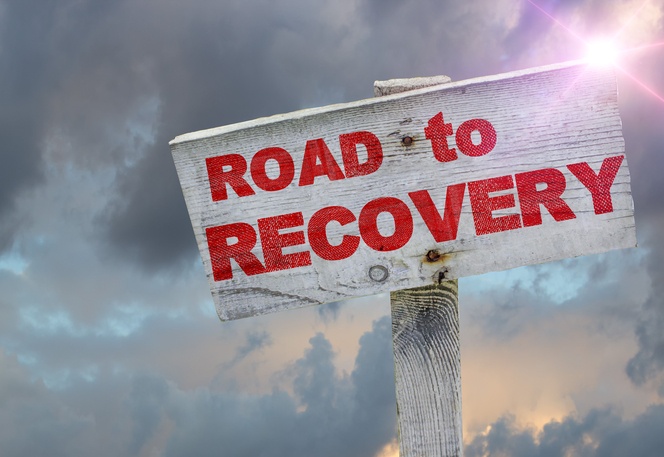
Psychologists use different treatment methods in dependency work. They treat this disorder with motivational interviewing, dependency education, do Cognitive Behavioral Therapy (CBT) to address distorted thinking, use Dialectical Behavioral Therapy (DBT) to effect long term change, offer psychological support, help people in recovery discover healthy ways to live, and introduce the 12 Step program as a possible recovery tool and support network.
Psychologists will help uncover personal causes of dependency and treat them. They will motivate individuals towards abstinence and redirect recovering individuals into a positive lifestyle. The reason for this is that some people who become dependent to alcohol, chemicals or behaviors have used it as a form of “self medication.” It is vital to resolve mental health issues, as this sets the stage for long-term sobriety and being clean.
Comprehensive Treatment for Addiction and Dependence
We approach dependency treatment from all angles and include the family of the dependent person. The disease of dependency affects the entire family. It is vital to understand family dynamics to make positive changes and offer support. We will introduce Al-Anon; the support network for the loved ones to help every family member affected by dependency.
It would be unscientific and unprofessional to promise an alcoholic or addict a cure, because we know that underlying this disorder is a permanent neurological change in the brain. There is no remedy in that sense. Rather than speaking of a cure, it is more realistic to speak of recovery. In recovery individuals are abstaining from mind altering substances and negative behaviors because they no longer have the obsession, nor need to do so. They are enjoying full lives, living up to their potential, and are free from the shackles of addiction and the emotionally eroding cycle of shame and guilt.
We offer advice in regards to the tailored therapy and the referral to rehabs or support groups.
Recovery in Addiction and Dependence Treatment
A qualified counselor can provide addiction treatment and is able to help with and facilitate recovery through rehabilitation and counseling services. Recovery from alcohol or drugs means more than abstaining from alcohol and drugs. It is a process during which an individual, with the help of a counselor, learns to control seemingly overwhelming feelings, re-builds his/her self-esteem, learns to think in healthy ways, and acquires coping skills to deal with the world he lives in. It’s all about having control over one’s emotions, creating balance in life and a sense of inner peace. Living in an aware and balanced state is what treatment professionals call “recovery.” Recovery is a life-long process.
Support Groups for Alcohol and Drug Addiction

There are recovery support groups in Dubai. The two support groups relating to chemical addiction (alcoholism and drug addiction) are Alcoholics Anonymous (AA) and Narcotics Anonymous (NA).
The quote below, from the AAGRAPEVINE, will shed some light on the idea and goals of the self-support group:
Alcoholics Anonymous is a fellowship of men and women who share their experience, strength and hope with each other that they may solve their common problem and help others to recover from alcoholism. The only requirement for membership is a desire to stop drinking. There are no dues or fees for AA membership; we are self-supporting through our own contributions. AA is not allied with sect, denomination, politics, organization or institution; does not wish to engage in any controversy, neither endorses nor opposes any causes. Our primary purpose is to stay sober and help other alcoholics to achieve sobriety.
12 Steps Program in Treatment of Alcohol Addiction
The Twelfe Steps of Alcoholic Anonymus
1. We admitted we were powerless over alcohol—that our lives had become unmanageable.
2. Came to believe that a Power greater than ourselves could restore us to sanity.
3. Made a decision to turn our will and our lives over to the care of God as we understood Him.
4. Made a searching and fearless moral inventory of ourselves.
5. Admitted to God, to ourselves, and to another human being the exact nature of our wrongs.
6. Were entirely ready to have God remove all these defects of character.
7. Humbly asked Him to remove our shortcomings.
8. Made a list of all persons we had harmed and became willing to make amends to them all.
9. Made direct amends to such people wherever possible, except when to do so would injure them or others.
10. Continued to take personal inventory, and when we were wrong, promptly admitted it.
11. Sought through prayer and meditation to improve our conscious contact with God as we understood Him, praying only for knowledge of His will for us and the power to carry that out.
12. Having had a spiritual awakening as the result of these steps, we tried to carry this message to alcoholics and to practice these principles in all our affairs.
Codependency: Too Much Caretaking
Counselors often meet with clients who have grown up in dysfunctional families. Many report low self-esteem, find it hard to be themselves, look for things outside themselves to make them feel better, or begin to abuse chemicals (i.e. alcohol) and use behaviors (i.e. overeating) to feel better. These are good people, with good intentions. Often, these are individuals who are devoted to taking care of others who are experiencing difficulties.
On the surface this might seem like a good and noble quality. However, when people obsessively need to be needed, and in an effort to feel good about themselves do too much for others, they lose sight of themselves. At that point they might feel so empty inside that they feel increasingly depressed and might even contemplate ending their lives. Additionally, they become emotionally fragile, because their successes in rescuing others will determine how they feel about themselves. In the mental health field we call such persons co-dependent.
Research indicates that historically the term codependency was used to describe individuals whose lives were affected by being in a relationship with a chemically dependent person. Specifically, the codependent spouse, parent, or sibling etc. was seen as having developed a certain way of mal-adaptive coping with life in reaction to their loved one’s drug or alcohol abuse. Previously codependents were called co-alcoholic, nonalcoholic, or para-alcoholic.
Typical Signs of Codependency
Codependency is not given as a formal diagnosis, but experts are familiar with its symptoms. Acording to experts and studies in mental health, here are some main signs of codependency:
- A strong desire to receive approval from other people
- Your sense of self-worth is formed by relying on what others say about you
- Choosing to help everyone else even if it goes against your own limits
- Blaming oneself to prevent arguments
- Constantly trying to ignore your feelings or needs
- Fear of being rejected or abandoned
- Attempting to handle or solve others’ problems
- Guilt or anxiety whenever you decide to focus on yourself
- Excessively seeing yourself as someone who helps or cares for others
- Struggles in deciding or upholding personal boundaries
- Remaining in relationships that leave you unsatisfied
Addiction and Families with Codependency
Talking about one’s family-of-origin, which is the family you were born into, is often a topic of discussion during counseling. Our family-of-origin has a tremendous impact on how we feel about ourselves, and how we interact with others. Our childhood experiences stay with us for a life-time, for better or for worse. Ideally, we have a warm and nurturing upbringing, experience unconditional love, form fond memories, and develop a positive self-image, high self-esteem and a sense of self-worth. In healthy families mistakes are made, as to err is human, but repairs, i.e. apologies and discussions, are made to heal and move forward.
There simply is no such thing as a perfect parent. This is due to the fact that all humans are fallible, and that life circumstances, perhaps a death in the family, or an illness will temporarily curtail a person’s parenting ability. Children can pull though such adversity without lingering effects if the parents continue to show unconditional love for their children.
Dysfunctional Families and Codependency
Realistically speaking, many people come from what counselor’s call “dysfunctional” families. The most obvious dysfunctions are: verbal, physical or sexual abuse. Then there are other issues, such as being overprotective, or neglectful; loving conditionally rather than unconditionally; not letting a child grow up, or parentifying the child; and humiliating and shaming the child. At times unhealthy parenting is due chronic and debilitating illness, chemical or behavioral addictions, or due to the experiences the parents had during their own childhood. Children look to their parents to learn about their adult roles as men and women, as husbands and wives, and fathers and mothers. So when there is significant family dysfunction, children grow up with a distorted view of their adult roles and associated behaviors. The cycle of dysfunction is perpetuated when children from dysfunctional families recreate the dynamics of their childhood in their relationships with others.
Dysfunctional families can have the following characteristics:
- Family members deny problems exist
- Do not communicate about problems
- Family members repress feelings and disregard their own needs
- Use behaviors to deny, avoid, and ignore difficult emotions
- Don’t talk, trust, touch, confront, and feel
Treatment for Addiction and Dependence. Summary
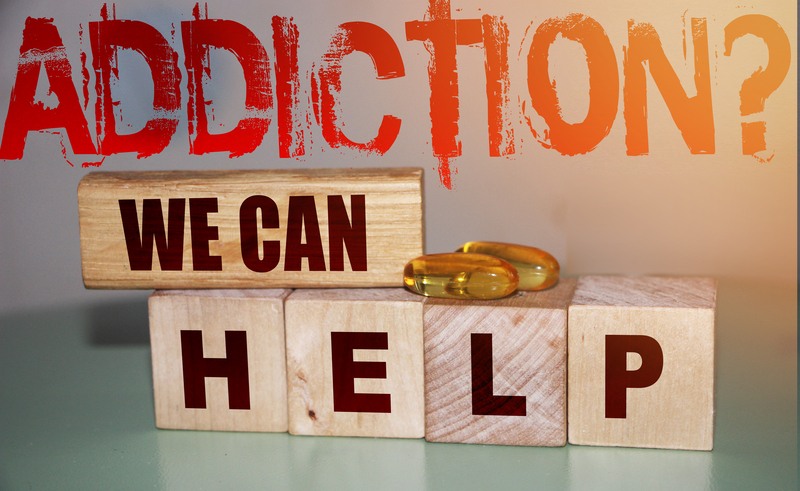
Addiction and dependence are terms often used interchangeably. More precisely, addiction is defined as the compulsive desire for specific substances or behaviours. These substances are consumed or behaviours maintained despite their negative consequences for the individual and society.
On the other hand, dependence means that a person can no longer live without the addictive substance (such as alcohol, drugs, or medications) or—in the case of behaviour-related addiction—without a particular behaviour like gaming. In medical terms, this is referred to as “dependence syndrome,” characterised by a range of psychological and/or physical symptoms.
Dependence can be classified into two types: substance-related and non-substance-related. Substance-related dependence involves the use of psychoactive substances (e.g., alcohol, nicotine, cannabis). “Psychoactive” refers to substances that can alter consciousness and mental states. Non-substance-related dependence manifests in excessive behaviours associated with a loss of control, such as gambling or excessive use of social media.
Causes of Addiction and Dependence
There are many causes for dependencies. Psychiatrist and psychologists have identified genes, behaviors, and social and emotional reasons that underlie dependency. Repeated substance abuse and other harmful behaviors will cause irreversible changes in the brain. Those changes called “psychological addiction” make it impossible for anyone with a dependency to “just drink less”, or “gaming less”. To make it simple, we have to understand that the “off switch,” between the pleasure reward system and the pre-frontal cortex is broken. The only chance to stay clean and sober for the rest of your life requires full abstinence. Even a small sip of alcohol will bring the patient to “square one”.
Behavioural Addictions
The recognition of behavioural addictions has broadened our understanding of addiction beyond substance use disorders. It is crucial to ask the right questions and build a therapeutic alliance to address these complex and subtle patterns. Through psychoeducation, exploration of ambivalence, and a flexible approach, clinicians help patients understand the root of their behaviour. In the second step, the therapist can implement a treatment plan, providing patients with the tools necessary to overcome the destructive behaviour leading to happier and more meaningful lives.
Codependence in Family Dynamics
Codependent behaviors become inextricably entangled with being a good wife, mother, husband, brother or father. They look strong but feel helpless. They appear controlling, but in reality are controlled themselves. The codependent family members orpartners only consolidate the addictive behaviour.
Relapse Prevention
Some individuals think their relapse is due to internal factors such as lacking willpower. Dependent persons who have relapsed might come to believe they will never be able to stay sober. However, when a dependent person experiences a relapse and comes to understand it as not being able to cope with a risky situation, they can learn from their mistake. This helps them avoid such situations in the future and continue their recovery.
Counsellors encourage specific intervention strategies that address the immediate determinants of relapse and self-management strategies. This addresses the covert antecedents of relapse. These strategies fall into the categories of skills training, cognitive restructuring, and lifestyle balancing.
FAQs about Therapies for Addictions
At CHMC, we are prepared to diagnose and provide currently available treatment options for addition to support you in your recovery. We will discuss the goals of dependency treatment, give you a definition of addiction, and explain why specialists speak of recovery and not a cure for dependency.
The following FAQ answers the most common question about dependencies and their treatment. Our German Clinic for Psychiatry and Psychology in Dubai is specialised in the treatment of distinct psychiatric disorders, among them therapy for dependencies. For more information, call: +971 4 4574240
What is addiction?
Addiction is a complex condition characterised by compulsive drug use or engaging in a behaviour despite harmful consequences. It involves a strong craving for the substance or activity, loss of control over its use, and continued use despite harmful effects on health, relationships, and other areas of life.
My husband is an alcoholic. Can you help him?
At CHMC, we have the experience and training to treat alcoholism and addictions. The thing to consider is that many individuals are in denial about their problem. It is not until someone wants treatment that treatment makes sense and is effective. We strongly recommend support group attendance for people struggling with addictions (AA) as well as their family members (AL-Anon).
Why are AA and NA an important part of alcohol and drug treatment?
The answer is: It is an effective addiction treatment method. As a matter of fact, in California, 3 hours of support group attendance counts as 1 hour of therapy in court-mandated drug and alcohol treatment. Furthermore, anecdotal reports and scientific studies show lower rates of relapse among individuals in treatment for alcoholism and drug addiction who attend AA or NA regularly.
What is the purpose of the AA and NA meetings?
- Listening and learning
- Sharing about each other’s problems, addiction, recovery and challenges
- Getting a sponsor (a support person)
How do I find a support group for alcohol and drug addiction in Dubai?
What role does a sponsor play in AA or NA?
A sponsor is someone with whom the newcomer will build a relationship that supports his recovery. A dependent person can call his or her sponsor in a crisis or if someone needs support to remain sober. The sponsor helps the new member go through the 12-step programme.
How do you get a sponsor in Dubai?
When you attend a support meeting for alcohol or drugs in Dubai, you simply state in the meeting that you need a sponsor. Typically, someone will come up at the end of the meeting and offer sponsorship. At some meetings available, sponsors will be asked to raise their hand. If, for different reasons, the newcomer does not connect with a particular person as a sponsor, this should be communicated at the meetings. There will be always other suitable candidates ready to take over.
Are there any requirements to participate in the 12-step programme in Dubai?
The only thing required is that the alcoholic or drug addict has a desire to stop using, and attendees are obliged to observe strict confidentiality and anonymity. There are no membership fees.
How are family members and friends affected by someone’s alcohol or drug addiction?
It is important for loved ones of alcoholics and drug addicts to get help. They must learn as much as they can about the addiction treatments. It is advisable to see a counsellor or addictions specialist to gain more insights into the disease of addiction and to attend a self-help group. The more they understand about this disorder, the better they will understand what the alcoholic or drug addict is going through. When one person in the family is getting help and treatment for his/her addiction, it is important for those involved in relationships with the addict to begin their own journey of personal growth. The underlying reason for this is to begin healing the hurt and to be able to jointly move forward in a healthy way.
A very important resource for family members/friends is Al-Anon.
What is the role of Al-Anon in treatment for addictions in Dubai?
Al-Anon is based on the same principles (i.e., meetings, 12 steps, sponsorship, etc.) of AA. The purpose of this group is to give those who are in relationships with addicts an opportunity to get support from individuals in the same kind of situation. One of the main lessons new members learn is that a family member cannot make the addict better. Only the addict can make the decision to rehabilitate and work on his/her sobriety programme.
The other important lesson many learn is to STOP enabling the addict to continue his/her alcohol and drug addiction by covering for them, giving them money, or providing a place to stay. Do continue to love the addict, but do not do anything that supports the addiction or removes negative consequences. Many in Al-Anon call this “thought love.”
Al-anon meetings
Any contact persons listed on any of the AA-based support group websites will be more than happy to help. This is the strength of the fellowship to be supportive of anyone in recovery or anyone who wishes to stop abusing alcohol or drugs.
Will I get in trouble with the law if I get addiction treatment?
We are a mental healthcare clinic, and all our treatment providers guarantee our patients absolute confidentiality. This is a private, discrete, and confidential setting.
Are addiction and dependence the same?
No, addiction and dependence are not the same. Addiction involves compulsive drug use despite harmful consequences and includes psychological and behavioural components. Dependence refers to physical adaptations to a substance, leading to withdrawal symptoms when the substance is stopped or reduced. While addiction often involves dependence, they are distinct concepts.
Can addiction be genetic?
Yes, addiction can have a genetic component. Research suggests that genetic factors contribute to about 40–60% of the risk for addiction. Certain genetic variations can increase susceptibility to addiction by influencing how individuals respond to drugs, their sensitivity to reward, and their ability to regulate impulses and control behaviour.
Can addiction be cured?
Addiction is considered a chronic condition, meaning there is no “cure” in the traditional sense. However, it can be effectively managed with appropriate treatment and support. Many people with addiction can achieve long-term recovery and lead fulfilling lives by abstaining from addictive substances or behaviours and engaging in ongoing therapy, support groups, and other forms of treatment.
How does addiction affect mental health?
Addiction can have profound effects on mental health, exacerbating existing mental health conditions and even contributing to the development of new ones. Substance abuse and addictive behaviours can lead to changes in brain chemistry and function, resulting in symptoms such as anxiety, depression, mood swings, paranoia, and cognitive impairments. Additionally, the guilt, shame, and isolation often associated with addiction can further worsen mental health and lead to social and interpersonal difficulties. Untreated mental health issues can also increase the risk of relapse and hinder recovery from addiction. Therefore, addressing both addiction and co-occurring mental health disorders is essential for effective treatment and long-term recovery.
What causes addiction?
Addiction can be caused by a combination of genetic, environmental, and psychological factors. Factors such as genetics, trauma, stress, and early exposure to drugs can contribute to the development of addiction.
What are the signs and symptoms of addiction?
Common signs and symptoms of addiction include cravings, loss of control over drug use, withdrawal symptoms, neglecting responsibilities, and relationship problems.
How is addiction diagnosed?
Addiction is typically diagnosed based on criteria outlined in diagnostic manuals such as the DSM-5, which include symptoms like impaired control, social impairment, risky use, and pharmacological criteria.
What types of addiction exist?
Addiction can involve substances such as drugs or alcohol, as well as behaviours such as gambling, gaming, or shopping. It is considered a chronic, relapsing disorder that requires comprehensive treatment and ongoing support for recovery.
Can addiction be treated?
Yes, addiction can be treated, although it may require long-term management and support.
What are the treatment options for addiction?
Treatment options for addiction include therapy (such as cognitive-behavioural therapy), medication-assisted treatment, support groups (such as Alcoholics Anonymous or Narcotics Anonymous), and residential or outpatient programmes.
How effective are addiction treatments?
The effectiveness of addiction treatments varies depending on individual factors such as the severity of addiction, motivation for change, and presence of co-occurring disorders.
How can I help someone with addiction?
If you suspect someone has an addiction problem, it’s important to approach them with compassion and offer support. Encourage them to seek professional help and avoid judgement or criticism.
How can addiction be prevented?
Addiction prevention efforts may include education, early intervention, promoting healthy coping mechanisms, and addressing risk factors such as trauma and mental health disorders.
What are some common misconceptions about addiction?
Common misconceptions about addiction include viewing it as a moral failing or lack of willpower rather than understanding it as a complex medical condition.
How does addiction affect relationships?
Addiction can strain relationships due to lying, manipulation, and betrayal of trust. Family therapy and support can be beneficial in addressing these challenges.
Schedule an appointment with our top specialist in treatment for addictions
Call CHMCAddiction and Dependence Treatment at Sakina Rehab Center

The Rehabilitation Center Sakina offers a comprehensive range of services, including individual and group sessions, psychoeducation on addiction and mental health, Cognitive Behavioral Therapy (CBT), relapse prevention strategies, family support, and holistic approaches such as mindfulness and physical fitness.
The aftercare planning and support systems ensure continuity of care. Additionally, Sakina provides customized programs to meet individual needs, including dual-diagnosis support for co-occurring mental health conditions such as addiction and depression.
Read More about Addictions
- Tobacco Addiction
- Relapse Prevention in Addictions
- Behavioural Addictions
- Consequeces of Alcohol Use
- Delirium in Alcohol Witdrawahl
- Medications for Alcohol Addiction
- Rehabilitation for Alcohol Addiction
Sources
Cognitive behavior therapy with Internet addicts: treatment outcomes and implications.Young KS.Cyberpsychol Behav. 2007 Oct;10(5):671-9. doi: 10.1089/cpb.2007.9971.PMID: 17927535 Clinical Trial.
Uppers, Downers, All Arounders: Physical and Mental Effects of Psychoactive Drugs by Darryl S. Inaba, William E. Cohen, Elizabeth von Radics and Ellen K. Cholewa (Jul 15, 2011)
American Association of Addiction Medicine. 2022.l www.asam.org
Beattie, Melody. Codependent No More: How to Stop Controlling Others and Start Caring for Yourself. Hazelden, 1992.
National Library of Medicine: https://www.ncbi.nlm.nih.gov/pmc/articles/PMC3072794/
“Drug addiction (substance use disorder) – Symptoms and causes”. Mayo Clinic. Retrieved 21 November 2022.
American Psychiatric Association (2013). “Substance-Related and Addictive Disorders” (PDF). American Psychiatric Publishing. pp. 1–2. Archived from the original (PDF) on 15 August 2015.
Gearhardt AN, Corbin WR, Brownell KD (February 2016). “Development of the Yale Food Addiction Scale Version 2.0”. Psychology of Addictive Behaviors. 30 (1): 113–121. doi:10.1037/adb0000136. PMID 26866783.
American Psychiatric Association, American Psychiatric Association, DSM-5 Task Force (2013). Diagnostic and statistical manual of mental disorders : DSM-5 (5th ed.). Arlington, VA: American Psychiatric Association. p. 481. ISBN 978-0-89042-554-1
Block JJ (March 2008). “Issues for DSM-V: internet addiction”. The American Journal of Psychiatry. PMID 18316427.
Weinstein A, Lejoyeux M (September 2010). “Internet addiction or excessive internet use”. The American Journal of Drug and Alcohol Abuse. PMID 20545603.
“Addictive behaviours: Gaming disorder”. www.who.int. Retrieved 25 October 2022.
“Tobacco, Alcohol, Prescription medication, and other Substance use (TAPS) Tool”. nida.nih.gov. Retrieved 29 November 2022.
Cheetham A, Allen NB, Yücel M, Lubman DI (August 2010). “The role of affective dysregulation in drug addiction”. Clin Psychol Rev. PMID 20546986.
Hill R, Harris J (2 November 2021). “Psychological Approaches to Addiction”. In Day E (ed.). Seminars in addiction psychiatry (2nd ed.). Cambridge: Cambridge University Press. ISBN 978-1-911623-19-9.
Vassoler FM, Sadri-Vakili G (2014). “Mechanisms of transgenerational inheritance of addictive-like behaviors”. Neuroscience. 264: PMID 23920159.
Mirin SM, Weiss RD, Griffin ML, Michael JL (1 January 1991). “Psychopathology in drug abusers and their families”. Comprehensive Psychiatry. PMID 2001619.
Mayfield RD, Harris RA, Schuckit MA (May 2008). “Genetic factors influencing alcohol dependence”. British Journal of Pharmacology. PMID 18362899.
“Understanding Drug Use and Addiction”. www.drugabuse.gov. National Institute on Drug Abuse. 6 June 2018. Retrieved 29 May 2020.
Lewis M (October 2018). Longo DL (ed.). “Brain Change in Addiction as Learning, Not Disease”. The New England Journal of Medicine.
“Adverse Childhood Experiences”. samhsa.gov. Rockville, Maryland, United States: Substance Abuse and Mental Health Services Administration. Archived from the original on 9 October 2016. Retrieved 26 September 2016.
Enoch MA (March 2011). “The role of early life stress as a predictor for alcohol and drug dependence”. Psychopharmacology. PMID 20596857.
“Environmental Risk Factors”. learn.genetics.utah.edu. Archived from the original on 17 September 2018. Retrieved 17 September 2018.
Marcos AC, Bahr SJ (June 1988). “Control Theory and Adolescent Drug Use”. Youth & Society. ISSN 0044-118X. S2CID 143860602.
Spear LP (June 2000). “The adolescent brain and age-related behavioral manifestations”. Neuroscience and Biobehavioral Reviews. PMID 10817843. S2CID 14686245.
Hammond CJ, Mayes LC, Potenza MN (April 2014). “Neurobiology of adolescent substance use and addictive behaviors: treatment implications”. Adolescent Medicine. PMID 25022184.
Catalano RF, Hawkins JD, Wells EA, Miller J, Brewer D (1990). “Evaluation of the effectiveness of adolescent drug abuse treatment, assessment of risks for relapse, and promising approaches for relapse prevention”. The International Journal of the Addictions. PMID 2131328.


